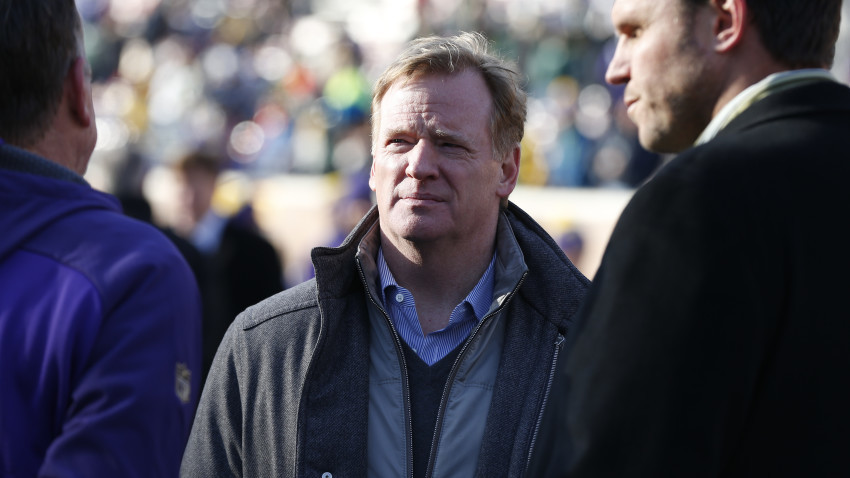This isn’t exactly surprising news, but it’s still ever so damning to the NFL, Roger Goodell, and any other person that thought shaping a study’s research of football and brain disease in their favor. It’s almost like this is a movie, because the plot has the antagonists, protagonists, a conflict and rising action. Could this be the climax?
According to a government report obtained by ESPN’s Outside the Lines, “At least a half-dozen top NFL health officials waged an improper, behind-the-scenes campaign last year to influence a major U.S. government research study on football and brain disease.”
The report, according to Outside the Lines, details how the NFL “pressured the National Institutes of Health to strip the $16 million project from a prominent Boston University researcher and tried to redirect the money to members of the league’s committee on brain injuries.”
When the NFL had asked the NIH to remove Robert Stern from the research, who had previously criticized the league for hiding information from the players and public on brain injuries, the league had “violated policies that prohibit private donors from interfering in the NIH peer-review process.”
As a result, the government report concluded the NFL’s actions were a part of a “long-standing pattern of attempts” to shape the research in their favor.
Talk about corruption. The report also states the following:
• The co-chairman of the NFL’s committee on brain injuries, Dr. Richard Ellenbogen, was one of the league’s “primary advocates” opposing Stern, even though Ellenbogen had applied for the same grant and stood to benefit personally. Ellenbogen previously denied to Outside the Lines that he tried to influence the NIH, but the report sharply criticizes his actions.
• The NFL was warned that taxpayers would have to bear the cost of the $16 million study and that the NIH would be “unable to fund other meritorious research for several years” if the league backed out. The NFL offered a last-minute, $2 million payment after an intermediary suggested a partial contribution would “help dampen criticism.” The NIH turned down the offer.
• Even after an NIH review panel upheld the award to Stern, the NFL sought to funnel the $16 million to another project that would involve members of the league’s brain injury committee. The plan would have allowed the NFL researchers to avoid the NIH’s rigorous peer-review process. NIH Director Francis Collins rejected the idea.
Read the entire article from ESPN here.

